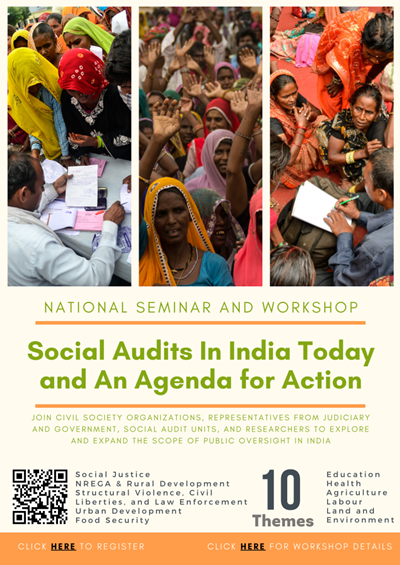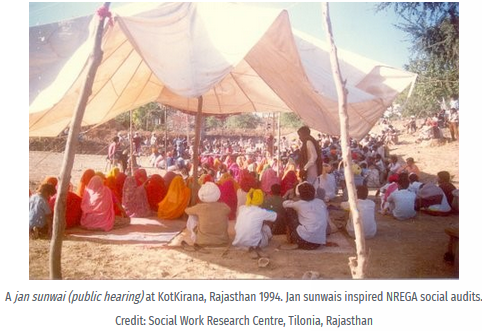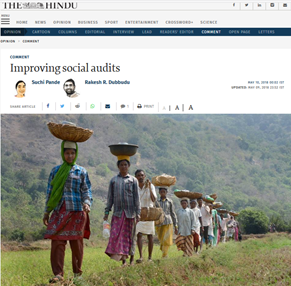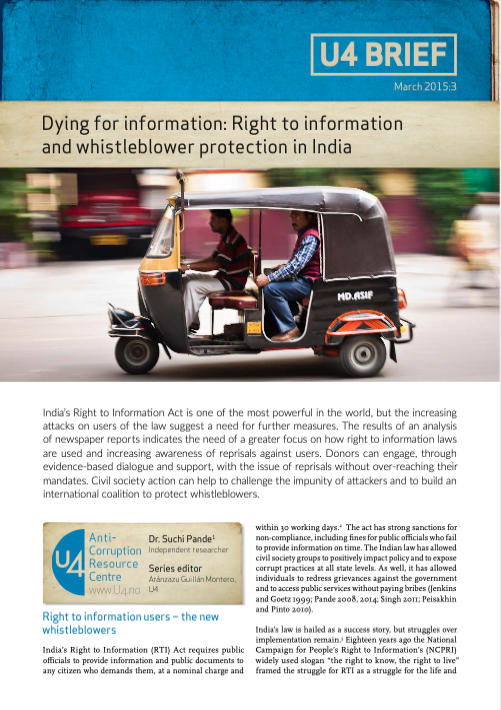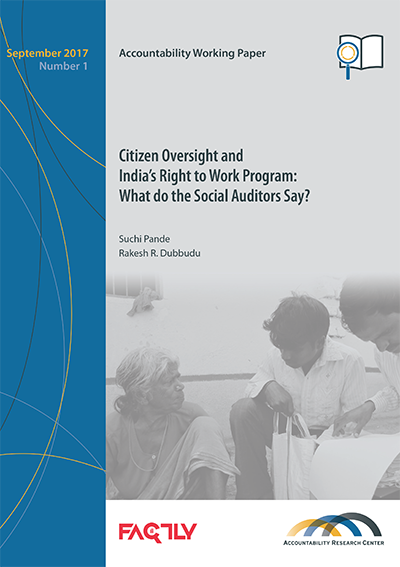
Citizen Oversight and India’s Right to Work Program: What Do the Social Auditors Say?
Date: September 2017
Authors: Suchi Pande, Rakesh R. Dubbudu
Publication type: Working Paper
Published by: Accountability Research Center, Factly
This Working Paper includes a summary in Telugu and a summary in Hindi.
Can citizens’ voices improve the performance of large-scale government anti-poverty programs? India’s national rural employment guarantee program (NREGA) has provided employment to over 50 million households since its launch in 2005. NREGA also includes a transparency and accountability process—social audits—that enables collective action for public oversight.
State governments are responsible for facilitating social audits through local governments, or panchayats, to prevent fraud and abuse of NREGA funds. In practice, however, a majority of local governments either lack capacity or are captured by vested interests. So far, only two state governments have created social audit units with the autonomy needed to prevent capture by vested interests. The states of Andhra Pradesh and Telangana established a neutral body—the Society for Social Audit Accountability and Transparency (SSAAT)—that is independent both of the state government administration and political patronage networks. Over the last decade, SSAAT has organized over 9,125 public hearings across these two states.
This exploratory study was carried out in partnership with SSAAT-Telangana, and it is the first to examine the performance of the state-run social audits from the perspective of the staff facilitating the audit. It is based on an anonymized web survey of over three hundred lower mid-level staff involved in facilitating social audits in Telangana (60 percent of SSAAT’s full time working staff), as well on ethnographic research and key informant interviews. We ask readers to consider a distinction between the questions that address staff perception of corruption (which can’t be verified) and their perception of NREGA processes like demand for work and timely wages (which can be verified with administrative data).
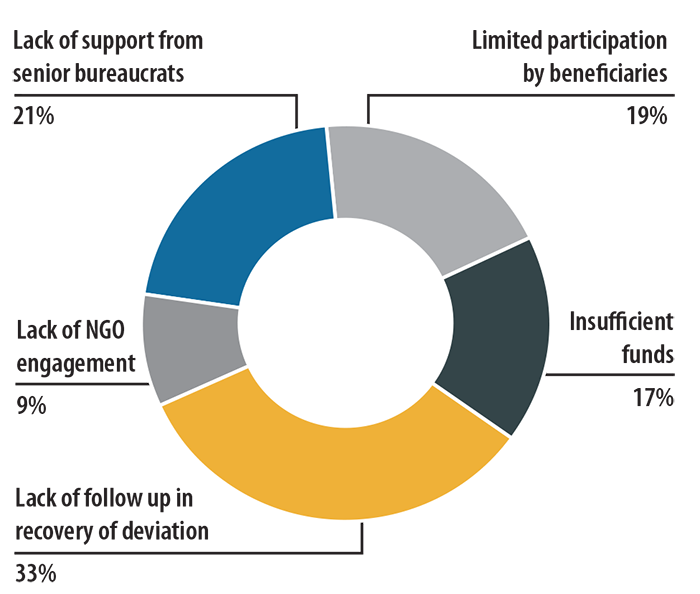 Figure S2. Obstacles in Making Social Audits More Effective
Figure S2. Obstacles in Making Social Audits More Effective
Suchi Pande is a scholar in residence at the Accountability Research Center (ARC), School of International Service, American University. She holds a PhD in Development Studies from the Institute of Development Studies, University of Sussex. Her doctoral research focused on the grassroots struggle for a national Right to Information law in India, and the role of “public audits” in implementing India’s Right to Work law. Before joining ARC, Suchi was associated with India’s National Campaign for People’s Right to Information, and the Rajasthan based Right to Information and Work campaign.
Rakesh Dubbudu is the founder of Factly and a campaigner for transparency in governance in India. He has been associated with the Right to Information (RTI) movement in India for more than a decade. He is a guest faculty at various administrative training institutes in Telangana on issues relating to RTI and governance. He brings with him years of experience of dealing with government data and information.

